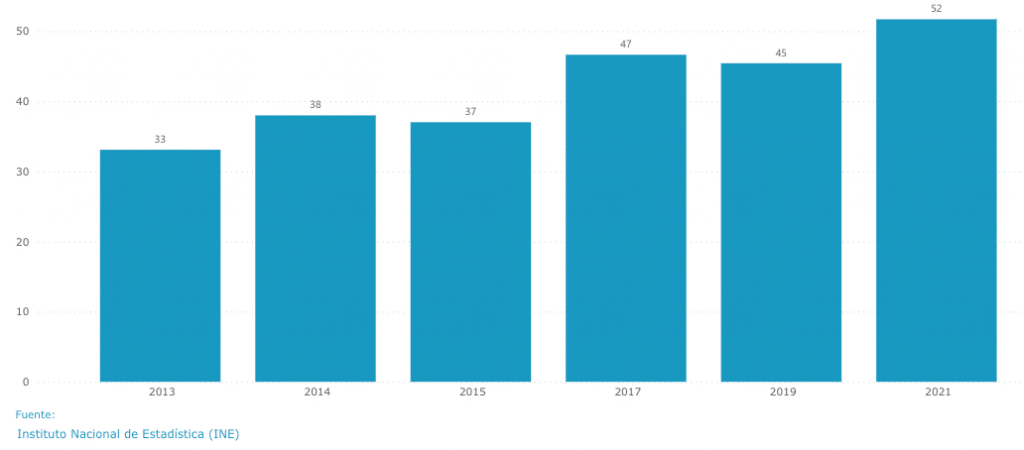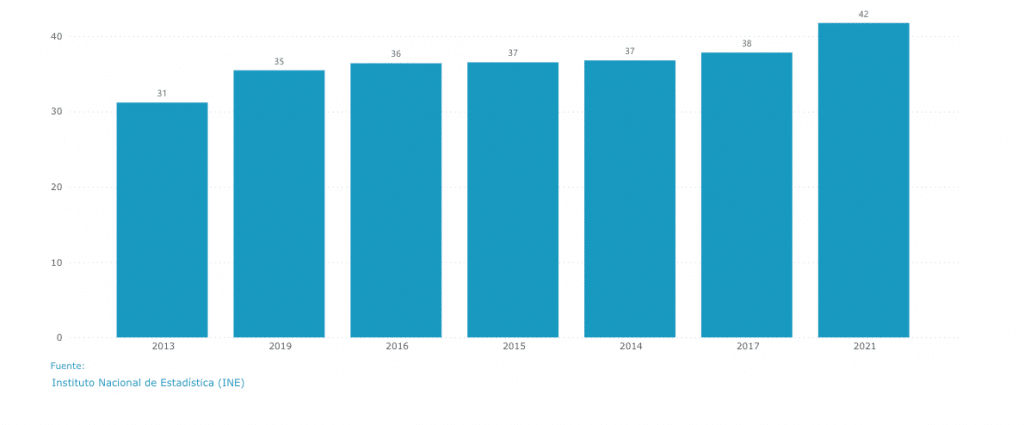Artificial intelligence (AI), Machine Learning (ML) and data analytics are rapidly changing and having a major impact on our business.
Read More »If you don't know the difference between an ERP (Enterprise Resource Planning) system and a CRM (Customer Relationship Management) system, we will explain it in detail below because they are currently the 2 systems most chosen by companies. They usually have points or functions in common, but they also have many differences.
Smaller companies, especially service companies, may first invest in a CRM solution to support the process of acquiring new customers and improving relationships with existing ones; this generally helps to accelerate development.
Companies whose business is based on the trade of goods will benefit most from the implementation of the ERP system.Even if they are not yet on a large scale, but it allows them to control purchases from suppliers, warehouses and sales. A modular ERP system is therefore a good option. At the beginning, you can implement only those modules of the system that are needed at the current stage of the company's development, and later, over many years of operation, you can gradually expand the system and turn it, for example, into an ERP with Artificial Intelligence.
Regardless of which system is implemented first, there will generally come a point at which your company will need an ERP and CRM system. These systems are complementary and it is worth ensuring that they are integrated in a way that avoids performing the same activities twice, separately in each system.
Both CRM and ERP allow information to be disseminated throughout the enterprise. and are used for improving business processesHowever, they differ:
ERP is used for enterprise resource planning. Within one application it is possible to manage many resources, some even say all the processes that take place in the company. This includes marketing, sales, customer base, production, warehouse and much more. The selection of the number of modules, i.e. system components, depends on the individual needs of a particular company and the processes that take place within it.
Thanks to this, it is possible to easily share information between departments and employees of the company. Each of them has a function in the system, which allows, for example, editing, displaying or deleting data. In this way, data flow and security are guaranteed.
The continuous input of information will make the system a database of updated company data, which will benefit all departments of the company. ERP solutions also allow for future expansion and integration, according to the needs of each business.

1. Precise adjustment to the needs.
2. Collection of many different data within one application.
Data security.
4. Possibility of integration and future expansion.
CRM is used for customer relationship management. It also helps to organize and automate processes, but its scope is much smaller. CRM helps to manage, standardize and improve only sales, marketing and customer service processes.
Therefore, the CRM system may have a different degree of expansion, but it will not enable the operations offered by the ERP, e.g. production management.

► You may be interested in: Differences between a traditional CRM and an intelligent CRM
1. Customer relationship management, marketing and sales.
2. Sales escalation and proper evaluation of sales opportunities.
3. Future expansion as needs increase.
4. Integration with external systems.
| CRM Application | Benefits of the CRM system |
| Organize and automate marketing activities. | High quality customer service. |
| Manage the sales process. | Effectiveness of sales and marketing activities. |
| Automation of the customer service process. | Acquire new customers. |
| Organization of communication with customers. | Increased customer loyalty. |
| Identification of business opportunities and potential customers or partners. | Increase sales. |
| ERP Application | ERP system benefits |
| Standardization of business processes. | Data organization. |
| Supply chain management (purchasing, warehousing, sales, logistics). | Cost control. |
| Accounting and financial analysis. | Cross-cutting analysis to facilitate strategic decisions. |
| Human resources and payroll management. | Increased organizational efficiency. Improve sales results and increase company profits. |
Artificial intelligence (AI), Machine Learning (ML) and data analytics are rapidly changing and having a major impact on our business.
Read More »Fraud detection software is an important tool for protecting companies and individuals from fraudulent activity and minimizing the risk of fraud.
Read More »It is convenient that by means of a brief questionnaire we are able to verify the viability of a business opportunity. Next, develop [...]
Read More »In the dynamic financial world, optimizing the return on available assets is essential to the success of any lender. Gam [...]
Read More »